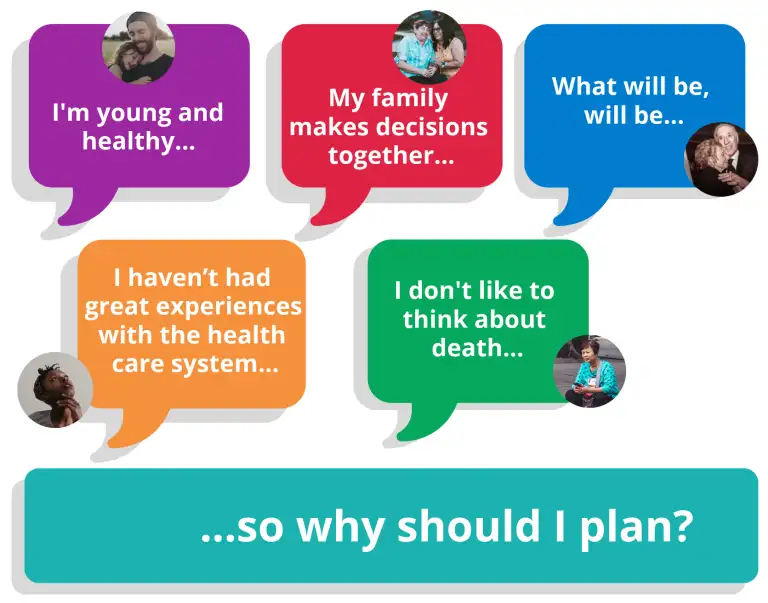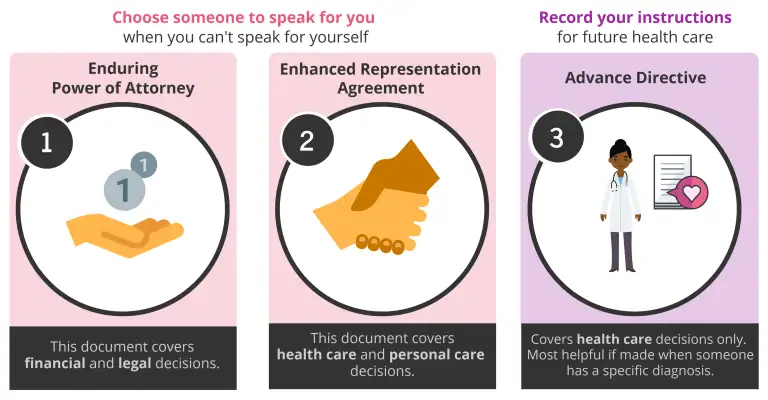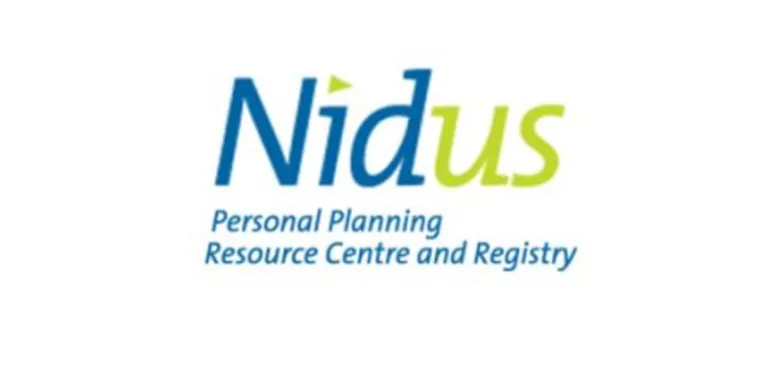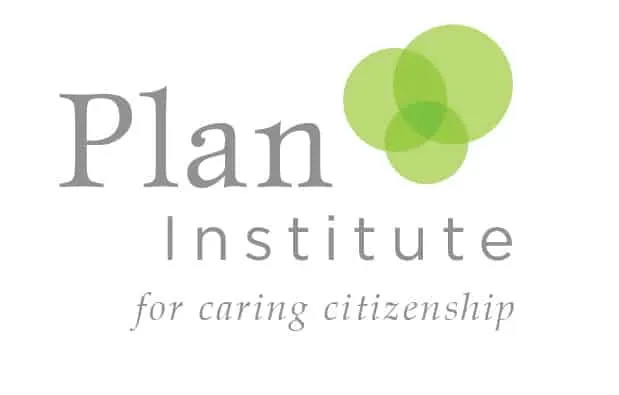
No one wants to think about illness and death. And if you’re young and healthy, you may feel you can get away with not thinking about it. But we can't predict the future. No one can know if or when they might get sick or become mentally incapable. Planning will set you up to live well, on your own terms — from the day you really need help until the end. Learn essential information you need to know when planning for your future care.
Why you should plan
When we talk about planning for your future, we are asking you to consider preparing for the possibility of an accident, a health crisis, chronic illness, or mental incapacity, as well as to consider your wishes for end-of-life care. These are difficult subjects to face.

The cold truth: you may eventually need help just getting through the day. What will I wear today? Or managing your finances. Do I need to sell my home? Or controlling what happens to your body. Should I accept medical treatment or refuse it?
This is where planning for your future care comes in. There are legal documents and other arrangements you can put in place now to ensure that help — from someone you know and trust — is in your corner if you need it.
None of these legal documents take away your right to make decisions right now. Think of them as lifeboats. They’re designed to be used in the possible event of your own incapacity.
Because life is unpredictable, the time to start planning is now.
You may feel that the legal tools we describe here don't quite make sense in your circumstance. The way people handle illness and death, make decisions, or even who they consider to be family may differ depending on their culture, religion, and other aspects of their identity.
For example, in British Columbia, the law emphasizes an individual's rights to make their own decisions about their own care. This may not be how things are done in your family.
The reality is these laws apply to you. So it’s important to learn about them, whatever your background.
In a nutshell, it's important to plan for your future care because:
If you don’t make plans, the law decides for you anyway. It says who can make decisions on your behalf. The law doesn’t know you, so the solutions it arrives at will likely be an imperfect fit.
Planning puts you in control. Learning about your options can empower you to use them to achieve what you want.
Putting plans in place eases the burden on your loved ones. They can step in to help, confident of your wishes and possessing the tools to support you.
Building blocks to understand planning
According to the law, a person needs to be mentally capable of making a decision or signing a document. If you want a good grasp of the planning process, it's an important legal concept to understand. This video explains what being mentally capable means.
If you want to be confident you’ll have a say in who makes decisions for you down the road, you must plan in advance. This involves choosing someone to help you manage your affairs. And then preparing the appropriate documents to make it official.
The law here groups decisions into four categories: financial affairs, legal matters, health care, and personal care. The document(s) you’ll need to prepare will depend on the kinds of decisions you want help making.
If you are a mentally capable adult in British Columbia, you should be aware of these three legal documents:
an enduring power of attorney covers financial and legal decisions
an enhanced representation agreement covers health care and personal care decisions
an advance directive records your instructions for future health care
You can use them to plan for a time when you aren't able to make your own decisions.
If an adult is already mentally incapable, or experiencing cognitive decline, they might still be able to sign a standard representation agreement. It will depend on the specific circumstances.

Learn what documents you might need

I'm not waiting for a crisis. I want to plan now for potential incapacity later.

I'm an adult with an intellectual disability, or who has suffered a traumatic brain injury. Or I'm a caregiver of an adult in this situation.

I am caring for an older adult with declining cognitive ability who needs help making decisions now.

I'm a capable adult, and am currently experiencing a health crisis.
Who can help

Nidus Personal Planning Resource Centre & Registry
Detailed information on personal planning, including template forms.
Your values, your culture, your circumstances, your identity: these things shape the kind of care you’ll want in the future. There are unique issues and challenges that different communities may face when planning for the future.
There are organizations and resources that can help.
Older adults

Seniors First BC
A non-profit working to protect the legal rights of older adults in BC.

Alzheimer Society of BC
Support for British Columbians with Alzheimer’s disease and other dementias.
Persons with disabilities

Plan Institute
Helps people with disabilities and those who support them plan for the future.



